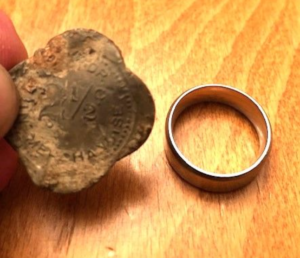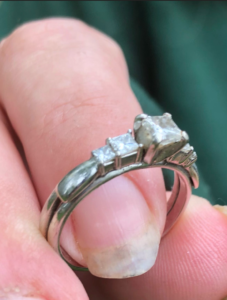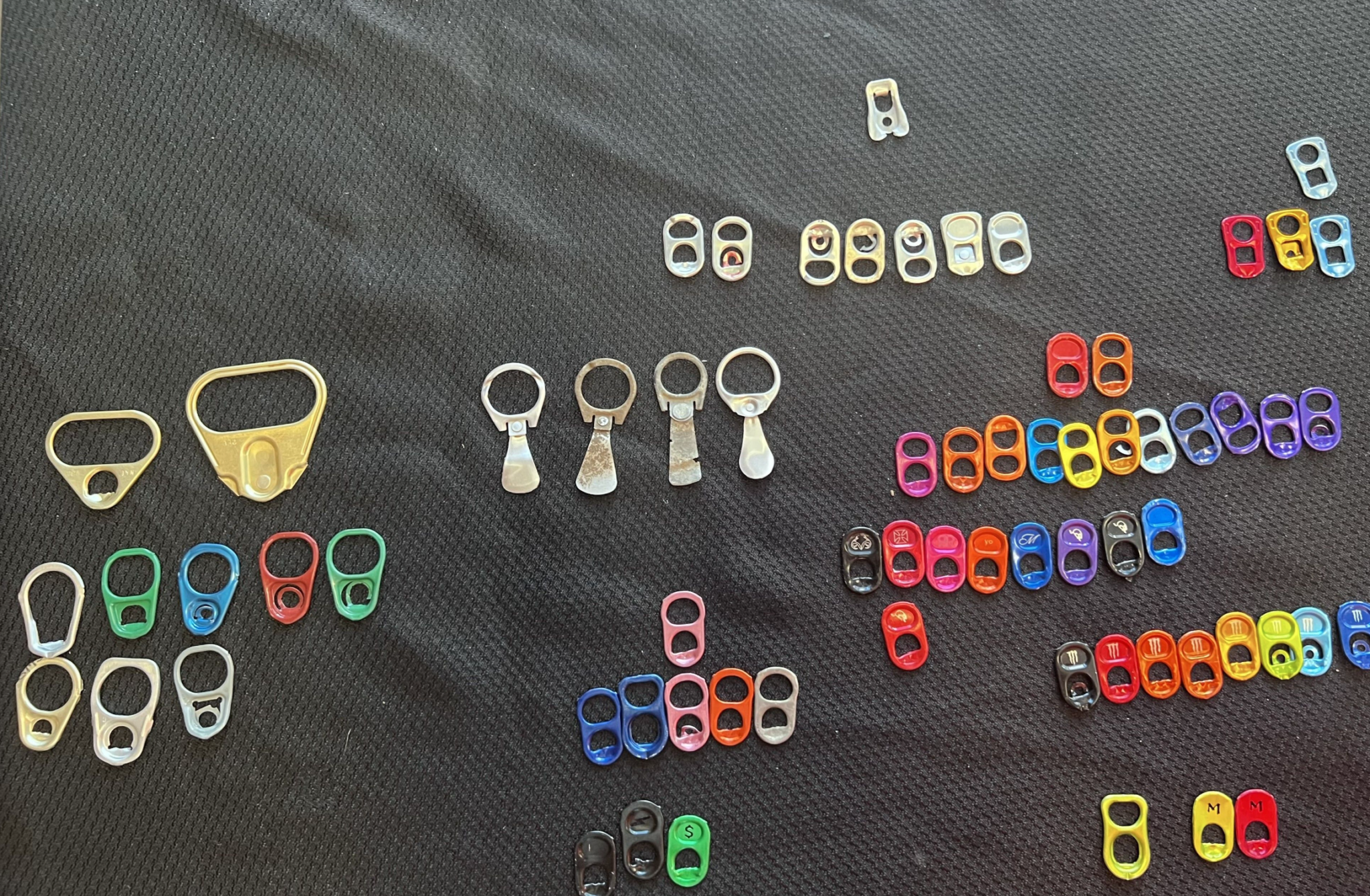Local Metal Detectorists Are Practitioners of an Uncommon Pursuit
Writer / Julie Yates
Photography / Brandi Caplinger & Provided
What’s an outdoor hobby that’s not too strenuous yet keeps participants physically active, with the added allure of possibly finding valuable artifacts? It’s metal detecting – the hobby for which the old adage, “One man’s trash is another man’s treasure,” rings true. For two area residents, Alex Morton and Mike Putzek, it is a sport that keeps them coming back for more, but for different reasons.
 Putzek got hooked when a friend of his found a silver dollar at the base of a tree not too far from his house. That piqued his interest and he’s been metal detecting on and off for the last 12 years. During that time he has found several interesting objects.
Putzek got hooked when a friend of his found a silver dollar at the base of a tree not too far from his house. That piqued his interest and he’s been metal detecting on and off for the last 12 years. During that time he has found several interesting objects.
“In 12 years I’ve never found gold but I have found silver coins and byzantine coins,” he says. “I have found an Indian Head penny dated 1877, and an onyx ring with the word ‘Dad’ on it spelled out with what looks like tiny diamonds. Last year I found a token marked five cents from a bar that was in Fort Wayne. In the early 1900s, using tokens as script was common in bars, coal mines, company stores and grocery stores.”
“I do occasionally find survey stakes for people and I helped a Center Grove couple find a lost wedding ring in the yard of their property,” he continues. “I was able to find it in about 10 to 15 minutes. I’m glad to find things for people, especially in exchange for giving me permission to metal detect around their property.”
Morton is fairly new to the pursuit and has been metal detecting for about a year. His interest leans toward a different kind of bounty. He is fascinated with pull-tab archeology. He got his start when a student from Pleasant Grove Elementary School, where he is a Honey Grove Before and After School Program site supervisor, brought him a pull tab from the 1970s.
“Before the modern stay tab or pop tab of the mid-‘70s to now, there were the ring tabs of the ‘60s,” he says. “The oldest tabs in the ‘40s and ‘50s used something called a church key, or a pocketknife was used, to open flat-top cans. There is a database and typology for every variety possible in pull-tab archeology. It’s almost like the way a biologist organizes insect species collections. It’s the study of garbology – how trash relates to humans. Anyone can be an archeologist. No schooling or degree is needed. I hope to be published in an archeological journal someday.”
Morton uses pop tabs in a token economy system where students can spend them for rewards. Friends from all over in places like Texas and Canada, as well as an old roommate from Vietnam, have sent him pop tops, amounting to hundreds of thousands. He goes through them all, saving those of archeological value. He donates the rest to the Ronald McDonald House.
“I’ve only been metal detecting here in the state,” he says. “Good places to go are ballparks, colleges, riversides and lakes. I inherited about three metal detectors from my grandfather and a cousin gave me one that had been in a barn. You can get a used one for about $50, but a top-of-the-line one can run up to $800 or $900. The device makes different tones and a seasoned individual can discern what metal has been detected from the sound.”
 There is a code of ethics that detectorists should follow. Permission should always be granted before detecting on someone’s property. When digging to uncover something, the earth should be pulled up in a horseshoe shape while leaving some sod still attached to the ground. When finished, earth should be returned to its original position and tamped down.
There is a code of ethics that detectorists should follow. Permission should always be granted before detecting on someone’s property. When digging to uncover something, the earth should be pulled up in a horseshoe shape while leaving some sod still attached to the ground. When finished, earth should be returned to its original position and tamped down.
“Some towns have laws against metal detecting because they are worried that they will damage the land by digging big holes,” Putzek says. “Detectorists are actually cleaning up and removing things stuck up in the ground that can injure people. It feels good at the end of the day to dump all the trash and litter I have found. Over the last 20 years archeologists have been working with detectorists to uncover history.”
“I’m not looking for gold – just trash,” Morton says. “In one year I have collected over 100 different types of pull tabs. I have found a lot of nails, plus a lot of weird bits and pieces of metal including a coin with a sheriff badge on it from the 1940s. I like the trash, rubbish and weird things. I put them in mason jars and sit them on the shelf. I think they look cool. Every time the metal detector makes a tone, I can’t wait to see what I’ve found.”






